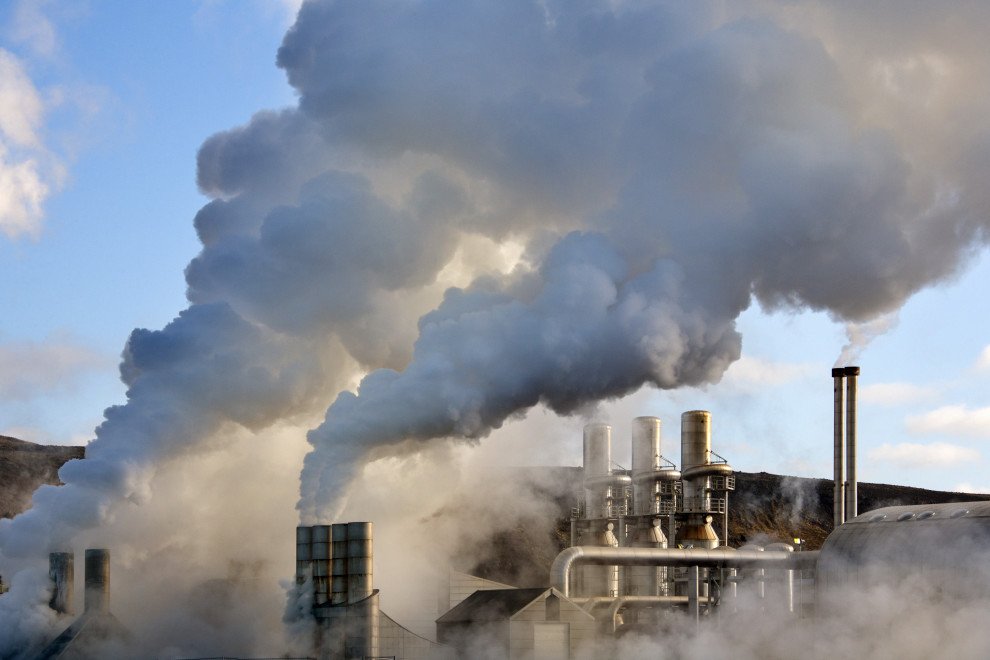The UK’s ambitious goal of securing a net-zero economy by 2050 has led it to have the world’s fastest decarbonisation rate, with carbon emission levels from power consumption falling by approximately two-thirds in the last decade, which was revealed in a report by the Imperial College of London researchers.
The study, conducted in collaboration with Drax Insights, revealed that CO2 emissions generated via power consumption decreased by 14% in 2019 as the UK energy sector focused more on renewables.
Carbon emissions in 2010 were recorded at 161 million metric tonnes, which fell to only 54 million metric tonnes by 2019.
Shifting to Renewable Sources
The UK’s commitment to utilising renewables for power generation has helped hasten the decarbonisation of the economy, falling a massive two-thirds in the past decade.
According to the report, the rapid decarbonisation rate is primarily driven by power generators opting to use renewables rather than natural gas and coal. Power demand has also gone down by 13% over the decade, which subsequently brought down carbon emissions to a third. Meanwhile, wind energy provided a quarter of the emission reduction.

The population has risen by 7% while GDP has grown by 25% within the past decade, but countermeasures to reduce power consumption like energy-efficient lighting and low-power manufacturing have effectively led to the reduction of CO2 emissions.
In 2019, power generation from renewables was eight times higher than in 2010. The combined capacity of renewable sources such as solar, wind, hydro, and biomass have risen from only 5.2GW in 2010 to a whopping 38.5GW today.
The average carbon output from electricity generation back in 2010 was recorded at 2.6 tonnes. In 2019, the first time in the past 60 years, that weight has gone down to less than a tonne, mainly due to the transition from gas and coal.
The UK’s power system is now burning only 50% of fossil fuels compared to ten years ago, with fossil fuel generation falling every year since 2010. As 40% of coal consumption in the UK is taken from imports, the energy transition to net-zero can lead to savings of up to £3.6 billion per year.
However, the report acknowledges that the pending electrification of the transport and heating sectors can result in a rise in emissions.

The researches recommend biomass as the answer to the impending emission increase following the electrification. They claim biomass can reduce CO2 compared to solar power, which is relative to installed capacity on the given period. They further believe additional support services and better flexibility can avoid a hiccup on the UK’s pathway to net-zero.
Changes in the Energy Industry
Dr. Iain Staffell from Imperial College London cited the unprecedented changes undergone by the power system in Britain as the motivator for the fast decarbonisation rate. He also included honorable mentions that contributed to the development, such as coal retirements, carbon prices, biomass conversions and an increase in wind capacity.
Dr. Staffell affirmed the significant decrease in electricity demand trumped other factors, driving down energy prices, and promoting positive environmental impacts. He is positive that maintaining the pace of such changes will enable the provision of more than half the UK’s electricity requirement by the end of the decade, which will practically create a carbon-free system.

After being criticised for “not understanding” climate issues, UK Prime Minister Boris Johnson expressed his support in the Government’s net-zero goal and urged other countries to follow with their ambitious targets this year.
The Prime Minister called on countries to set long-term goals to a net-zero economy at the launch of COP26, an international climate summit to be held in November at Glasgow, which the UK will host. He recognised the nation’s role and responsibility in leading the global energy transition.
Johnson launched COP26 at the Science Museum last Tuesday in London, in front of selected reporters. Italian Prime Minister Guiseppe Contre and British broadcaster David Attenborough were also in attendance.
The UK was the first-ever major economy to declare a legally-binding net-zero goal by 2050.
